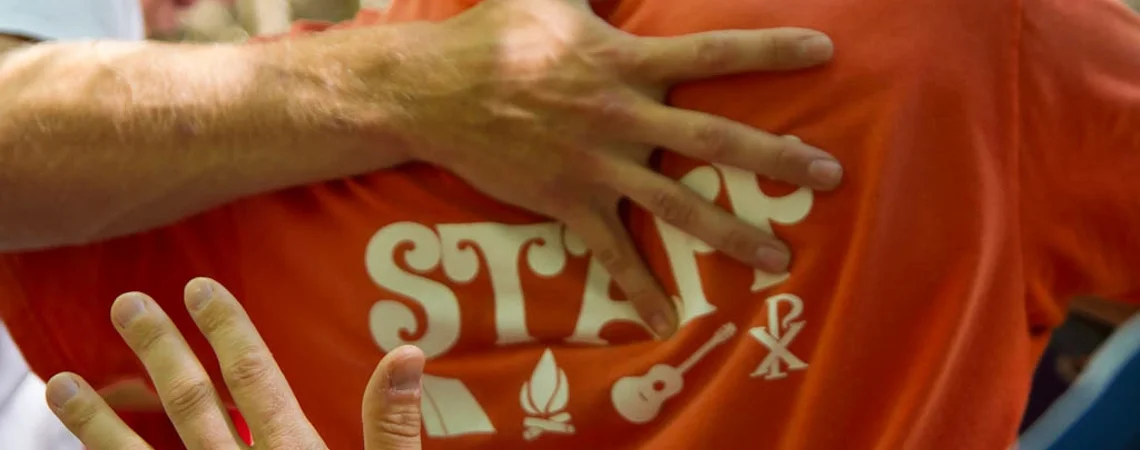Building Up Your Camp Ambassador Program
Most camps in Western North Carolina have some sort of “Road Show” in the off-season traveling to the Camp Representatives’ homes. Camps range in doing somewhere between 20-50 individual shows. The structure takes 1-2 hours and is often as follows:
- Camp Rep invites over neighbors, school families, friends from extracurriculars on a weekend afternoon or early weeknight.
- Camp Rep provides pizza or snacks and opens their home or secures a community space for the event.
- Camp Staff Member (typically a camp director) arrives at the home or community space about 30 minutes before the show and sets out camp marketing materials and cues up video.
- Prospective families arrive, socialize, and eat. Prospective campers play with whatever cool play things there are (consider bringing favorite games or toys from camp). Collect prospective families’ contact information.
- About 30 minutes into the scheduled time, families gather to watch a camp video and then participate in a Q&A session.
- After the “formal” program above, the Camp Staff Member thanks everyone for coming and is then available for one-on-one conversations.
[Note from Travis: Check out Camp Representatives Part 1. Many thanks to Ruby for taking the time to write up these thoughtful articles. You REALLY need to check out her camp leadership training focussed podcast, Camp Code.]
Many camps will also give some sort of gift to the parent and/or the child for when they have hosted an event. Ideas for gifts include produce grown at camp, camp store swag or camp store discounts, exclusive camp materials only available in the off-season, camp calendars, blankets, or backpacks. At GRP, I also spend a lot of time writing personal, handwritten thank you notes to the hosts and to the attendees to attempt to create a more personal connection with the families.
In truth, at GRP we have had mixed results with the Home Show format and have gone to a hybrid Road Show where GRP hosts several outdoor events for current and prospective families and camp alumni. Those events are supplemented by our home shows in towns where Camp Representatives are particularly fruitful or enthusiastic. We are doing less calling of all our Reps trying to schedule shows and instead focus on scheduling home shows with the ones who tell us each year, “We want to host a show for you.”
Learn from our mistakes
We have tried requiring all Camp Representatives to a) host a show and b) recruit three new campers. I love clear expectations and these seemed pretty clear. I hoped they would more clearly define the role of Camp Representative. It would also clearly define our travel schedule. I see this working with other people and other camps; however, for us, it ended up being more work and much unnecessary travel. We had to accept that some of our families truly don’t have the network of other people who can afford and are interested in camp.
That doesn’t mean those parents can’t talk about, feel a connection to, or help us promote camp. It just means we couldn’t entirely build our travel schedule around our Reps. Again, other camps in the area have done this very successfully as I am sure many of you have. While some of the Camp Representative process is comprised of pretty formulaic customer service and word of mouth strategies, you have to keep a keen eye on what is working. Mine the data and track your dollars carefully.
In the end, we expanded our marketing efforts to empower all of our families to have reasons to talk about camp. This idea really came from two books that Travis recommended on the CampHacker podcast. Check out The Referral Engine by John Janstch and Monster Loyalty: How Lady Gaga Turns Followers into Fanatics by Jackie Huba.
What makes your home shows unique?
[Travis' Note: Check out Part I of this Topic from Ruby Camp Representatives Part 1: Turning Viral Moms into New Camper Applications







